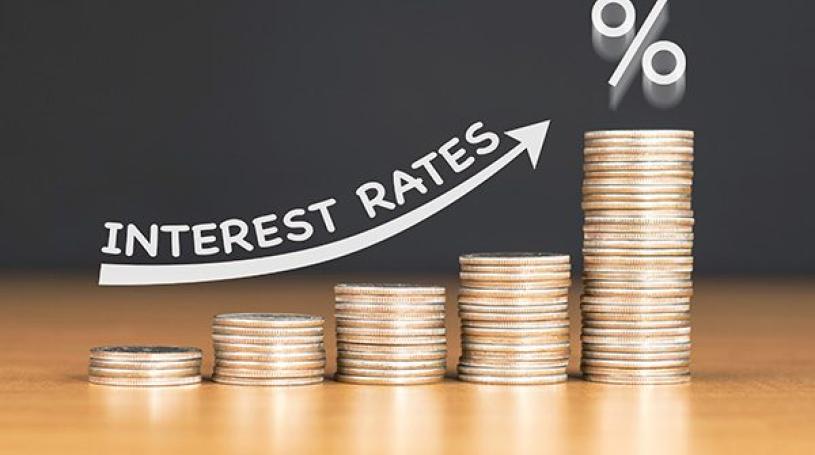How the payments sector can help mitigate economic uncertainty in 2023
January 16, 2023
Spencer Hanlan explores how the speed and efficiency of payments, particularly cross-border, could drive innovation to offset inflation. He sets out his top three predictions of 2023.The events of 2022 have been entirely unpredictable. The combination of three prime ministers, global financial instability and a looming recession has left many businesses with an uncertain future heading into 2023.
With the Bank of England raising the interest rate to 3.5% in December to curb rising inflation – the largest increase in over 30 years – the UK is now facing its highest rates since the global financial crisis of 2008. This means the cost of doing business will increase further as budgets squeeze and expenses rocket.
As a result, many could be forced to scale back operations as they are discouraged from taking out loans to finance investments. Furthermore, with consumers spending less, demand for goods and services will also decrease.
In 2023, this complex economic environment means businesses will need to implement a sustainable model for growth to survive. At the heart of this will be the fintech and payments industry, who can help businesses to consolidate processes to maximise efficiency and reduce costs, as well as ensuring they can seamlessly navigate regulatory demands.
Here’s my top three predictions on how businesses could rely upon the payments sector to mitigate economic uncertainty in 2023. Spencer Hanlon is global head of travel paymentsand head of Europe at Nium.
Spencer Hanlon is global head of travel paymentsand head of Europe at Nium.
1. Businesses will turn to payment speed and efficiency to combat rising costs
Inflation is the silent killer of businesses and personal wealth. That is why, in this period of economic volatility, businesses will be forced to take a step back and consider how they combat fluctuating costs, while streamlining operations and responding to customer demand for reliability and speed of delivery. We’ve already seen the Bank of England’s efforts to support organisations by raising interest rates, but in 2023, businesses will look towards the payments industry for more help. So much so, that businesses will increasingly adopt modern payment tools to build speed and efficiency into cross-border products and services. This will then help them to manage liquidity with instant settlement, keep customers happy, unlock new revenue streams and offset inflationary pressures. By increasing the speed of cross-border products and services, businesses can ensure they pay and get paid in real-time, every time. Fundamentally, those who can modernise their processes successfully will be better equipped to survive this uncertain time with stable and reliable finances.2. The global business mindset will speed up, not slow down, through payments innovation
Many, if not all, businesses aspire to operate globally and take advantage of talent, market appetite, and regulatory opportunities around the world. However, international expansion is often part of the long-term roadmap: a goal that follows funding, momentum objectives, or customer acquisition. However, today’s economic challenges will see businesses accelerate these global ambitions in the relentless pursuit of growth. Opportunities to expand their customer base and drive new revenue streams become harder to ignore when combatting inflationary challenges and squeezed budgets. As businesses adopt this global mindset, they will increasingly lean on payment providers as a reliable and flexible financial bridge into these new markets. With this support, businesses of all sizes will feel equal to larger enterprises, both in terms of resources and market opportunities. Unlike ever before, businesses will be able to leverage the same payment infrastructure to receive and send money in local currencies, at low exchange rates and in real-time. In turn, this will build trust with new markets and mitigate the effects of economic uncertainty.3. Businesses will turn to payment providers to remove the burdens of regulatory compliance
In 2023, businesses will become increasingly attuned to the complexity of changing global regulations. It’s here that payment providers will play a key role in removing compliance as a hurdle to international growth, customer acquisition or revenue generation. Fundamentally, leaders want to spend their time focused on business growth, product development and customer experience. As such, managing different regulatory environments can quickly become burdensome and costly. Many do not factor into their roadmap that each market may require a new license to move money or different compliance standards for onboarding customers and verifying identities. As being compliant and adhering to regulations is of utmost importance, it can ultimately draw attention away from more strategic endeavours that lead to growth. This means that as budgets are squeezed in 2023, businesses will want to ensure time and resources are spent on what will help, not hinder, the bottom line. The right payments partner will remove this headache, managing global regulatory compliance needs and requirements in real-time, thus making crucial resources and budgets available to be allocated to growth. There’s no doubt that the cork is out of the bottle on innovation in the payments industry and it will play a significant part in helping businesses to mitigate economic uncertainty in 2023. Technology continues to be a key competitive differentiator and the strategy to win must include taking advantage of payments transformation to unlock efficiency, increase the speed and reliability of payments, and demystify regulatory complexity to offset inflationary pressures and realise opportunities for growth. Spencer Hanlon is global head of travel paymentsand head of Europe at Nium.
Spencer Hanlon is global head of travel paymentsand head of Europe at Nium.
